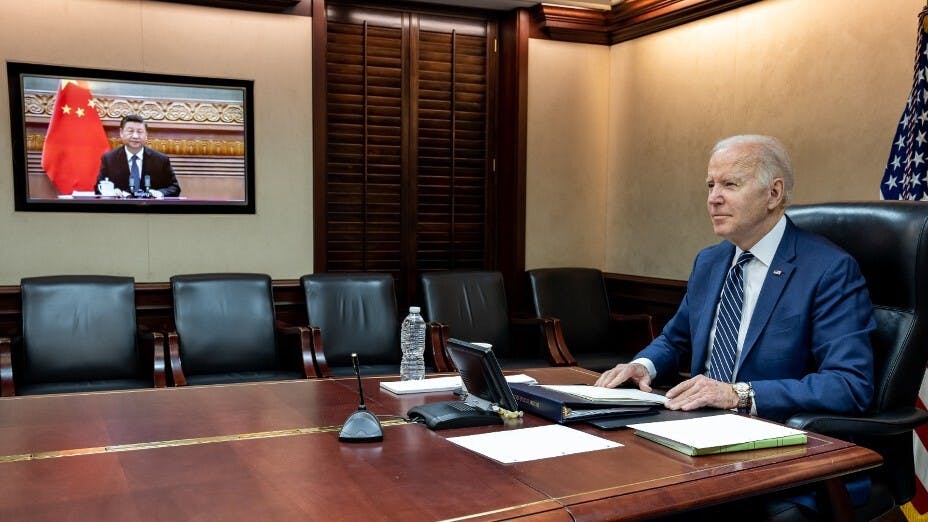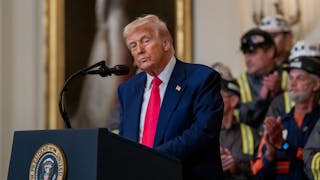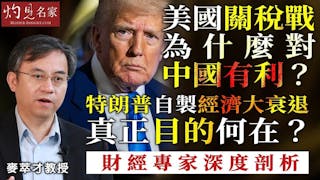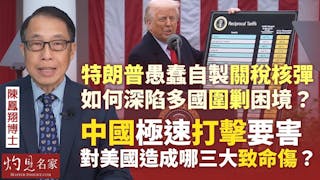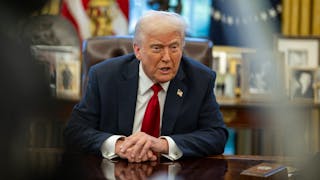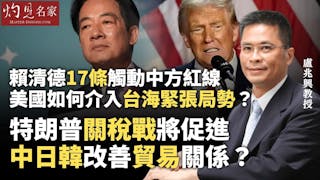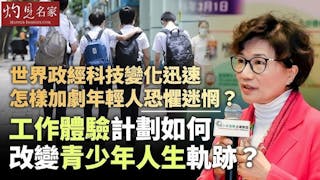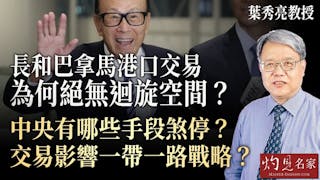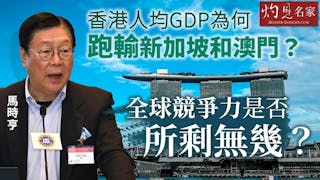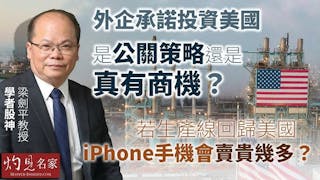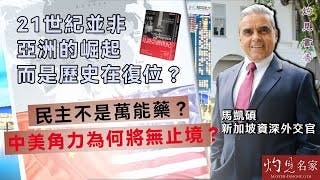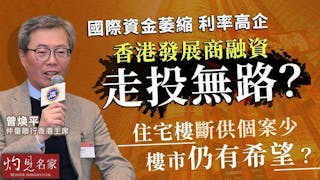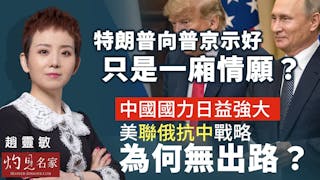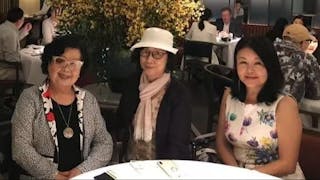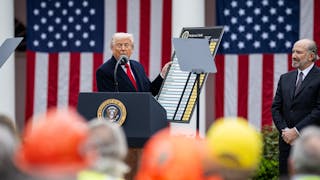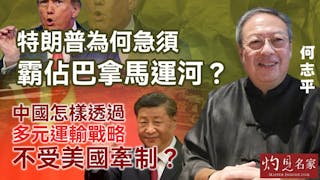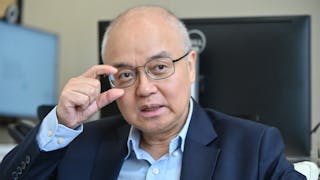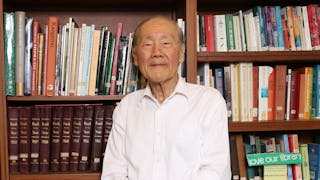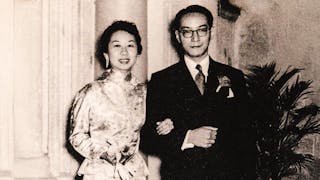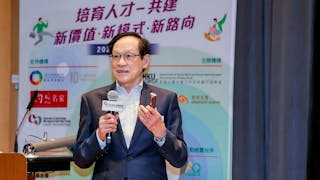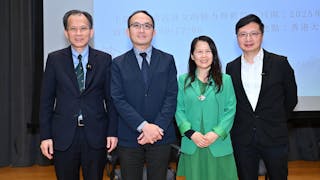國家主席習近平與美國總統拜登3月18日的視像通話,可視為過分自信的拜登,對中國政府的外交遊說努力,中國政府在俄烏衝突中的立場,已經令美國官員高度關注,深感憂慮。
美方憂中方支持俄羅斯
根據白宮的聲明,拜登與習近平通話的內容,首先是烏克蘭危機,其次是美國在台灣問題上的立場。聲明說,「談話的重點是俄羅斯無端入侵烏克蘭」,拜登詳細介紹為了防止和應對入侵所做的努力,包括讓俄羅斯付出「代價」。此外,拜登也「警告」中方,「如果中國向俄羅斯提供物質支持,將面臨的影響及後果」,同時「強調支持以外交方式解決危機」。聲明的最後部分,拜登重申了美國對台政策立場,即美國對台政策沒有改變,美國繼續反對任何單方面改變現狀。
從聲明的內容來看,美國政府最關心的是,中國會否在烏克蘭衝突中向俄羅斯提供物質支持。拜登明確發出警告,倘若中國這樣做的影響和後果。顯然,美國政府對習近平與俄羅斯總統普京2月4日達成的《中俄聯合聲明》的內容感到不安,聯合聲明的第3部分,首先提到了俄羅斯確認台灣是中國領土不可分割的一部分,中俄兩國都反對北約進一步擴大。儘管中俄雙方都只聲稱要建立更緊密的夥伴關係,但對美國來說,2月的這份《中俄聯合聲明》,幾近兩國結盟。
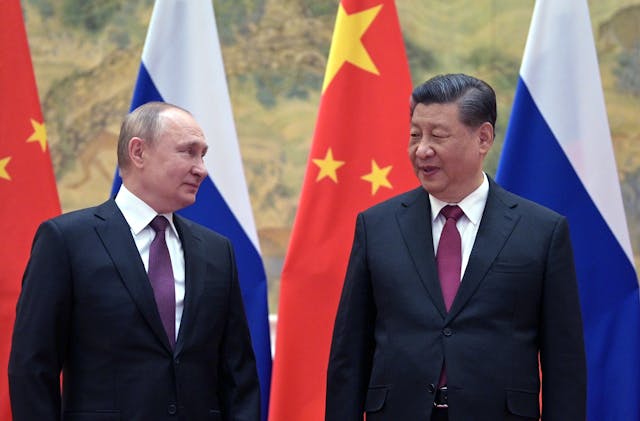
楊潔篪羅馬舌戰沙利文
俄烏衝突爆發後,美方進一步顯示對中方立場的不滿。在此期間,中方並未使用「入侵」一詞來形容俄羅斯的軍事行動。為了火上澆油,一些美國官員對美國傳媒表示,俄羅斯在俄烏衝突後,要求中國提供軍事裝備和援助。中國外交部對於這種「虛假信息」作出了非常迅速和強烈的反應。3月14日,外交部發言人趙立堅表示:「美方在烏克蘭問題上散布針對中方的虛假信息,用心險惡。」
美方在高度敏感的時候散布了這種「虛假信息」,令中共中央政治局委員、中央外事工作委員會辦公室主任楊潔篪3月14日在意大利羅馬與美國國家安全顧問沙利文的會談很艱巨,中美雙方都斷然表明了自己的立場。根據白宮的簡短聲明,在楊潔篪與沙利文的7個小時會晤中,美方提出了一系列影響美中關係的問題,包括烏克蘭問題。
不過,中國外交部關於楊潔篪與沙利文會晤的報道更為詳盡,報道指雙方不僅就中美關係,還就中方在台灣問題上的立場進行了坦誠的討論。
中方:美方需要堅持5點原則
具體而言,外交部網站提到,楊潔篪指出,美方需要堅持幾個原則:一、不尋求新冷戰;二、不尋求改變中國的體制;三、不尋求通過強化同盟關係反對中國;四、不支持台獨;五、無意同中國對抗。據外交部網站報道,楊潔篪表示,希望美方將拜登總統作出的承諾落到實處。隨後,楊潔篪重申了中國在台灣問題上的主權立場,稱「一個中國」原則是中美建交的前提。然而,美方近期的行動「與表態明顯不符」。顯然,中方對美方近期處理台灣問題的方式感到不滿。
根據外交部網站的報道,楊潔篪還表明了中方在涉及新疆、西藏和香港問題上的立場,這些問題屬於中國內政,不容外部勢力干涉。同樣,很明顯,中國對美國干涉中國內部事務,包括涉疆、涉藏和涉港等問題的行為感到不滿。
雖然白宮提及沙利文與楊潔篪的會談中談到「就俄羅斯對烏克蘭的戰爭進行了實質性討論」,中國外交部在其報道的最後部分,僅簡要提及對烏克蘭問題的討論。顯然,兩國的側重點明顯不同:中國更重視美國如何處理台灣問題,而美國更重視中國如何處理俄烏衝突。
沙利文與楊潔篪的會談結束後,白宮新聞秘書普薩基回應傳媒提問,重點關注烏克蘭衝突。她在3月14日下午說:「我認為我們在這次會談中傳達的訊息,以及我們的國家安全顧問所傳達的訊息是,如果他們(中國人)提供軍事或其他援助,當然會違反制裁,或努力支持戰爭,將會產生重大後果。」
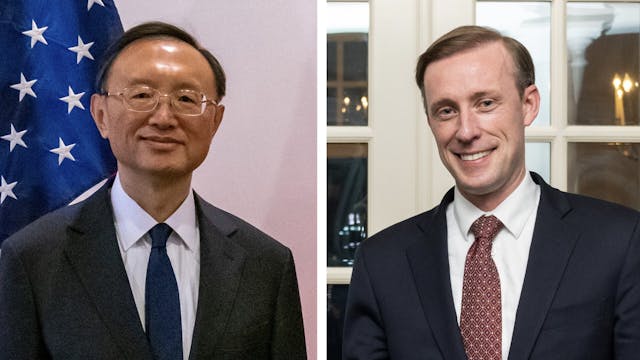
美憂俄向華尋求軍援
普薩基的立場,在拜登與習近平視像通話後又重申了一次。顯然,美方對收到有關俄羅斯向中國提出軍事援助請求的情報感到不安。中國和俄羅斯都迅速否認了俄羅斯向中方提出援助要求,尤其是俄羅斯方面,普京的發言人佩斯科夫(Dmitry Peskov)指這是假消息,稱俄方完全有能力在烏克蘭進行「特別軍事行動」。然而,3月18日有報道,稱歐盟接到有關俄羅斯要求中國軍事援助的情報。
值得注意的是,新華社3月19日的報道,以比白宮聲明更深入的方式,報道了習近平和拜登的視像通話。新華社的報道稱,拜登重申美方「不尋求打新冷戰」、「不尋求改變中國體制」、「不尋求通過強化同盟關系反對中國」、「不支持台獨」,以及「無意與中國發生衝突」。楊潔篪在會見沙利文時,已經提到美方重申的這些原則。
此外,新華社的報道指出,習近平強調中美雙方應承擔起維護世界和平與安寧的國際責任,雙方應加強各領域的溝通與對話。
中方更重視美方對台獨立場
更重要的是,習近平「非常重視」拜登強調美國不支持台獨。此外,習近平補充說,美國一些人向台獨勢力發出了錯誤的信號,他認為這是「十分危險」的。最後,習近平提到「中美過去和現在都有分歧,將來還會有分歧。關鍵是管控好分歧」。因為「一個穩定發展的中美關系,對雙方都是有利的」。
在烏克蘭問題上,習近平告訴拜登,中國不願看到這種充滿衝突的局面,中國「歷來主張和平,反對戰爭」,制裁「受罪的還是老百姓」,中國願向烏克蘭和受影響的其他國家進一步提供人道主義援助。習主席還呼籲美國和北約,與俄羅斯進行對話。
顯然,中方對美國對台政策的重視程度,遠遠超過其他任何事情。習近平重申了中方在烏克蘭問題上的立場,揭示了美方對中國政策的誤解。
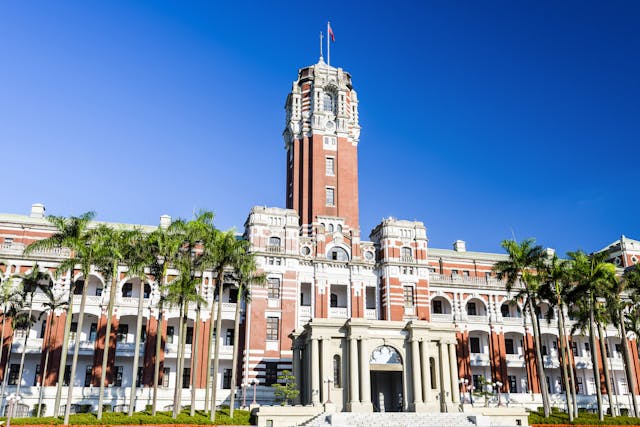
中美關係存在着深刻互不信任
進一步分析,拜登與習近平的視像通話結合了軟硬兩種姿態。軟的一面是拜登重申和肯定美國不支持台獨勢力──中方的立場認為美方前後矛盾且值得懷疑。另一方面,拜登警告中國,如果中國在俄烏衝突中向俄羅斯提供軍事和後勤援助,將會產生後果──中方的立場認為美方散布虛假信息。中美關係存在着深刻的互不信任。
總而言之,拜登的視像通話可被視為對中國的外交遊說努力,以確保在持續的俄烏衝突期間,中方不會在軍事和後勤上幫助俄羅斯。拜登的外交攻勢,是在沙利文和楊潔篪在3月14日的會談中進行了激烈的辯論和互擺政治姿態後立即進行的。美國對俄烏衝突的戰略很明確:必須爭取中方採取更加中立的立場,而不是轉向更加親俄的立場。然而,中方顯然認為解決台灣的前途問題是比俄烏衝突更為緊迫的事情。因此,拜登與習近平的視像通話,也為習近平爭取美方採取比以往任何時候都更加支持統一的立場,提供了千載難逢的機會,而雙方外交遊說的政治努力,在最近的中美接觸中變得更為突出。
Presidential Diplomacy and the Biden-Xi Meeting
The video call between US President Joe Biden and the Chinese President Xi Jinping on March 18 could be seen as Biden’s assertive diplomatic lobbying efforts at the government of the People’s Republic of China (PRC), whose position on the Russian-Ukrainian conflicts has already made American officials highly concerned and deeply worried.
The readout of President Biden’s call with President Xi, according to the Whitehouse briefing, focuses on firstly the Ukrainian crisis and secondly the US position on Taiwan. It said that “the conversation focused on Russia’s unprovoked invasion of Ukraine,” and that Biden detailed to US efforts to prevent the crisis and to impose “costs” on Russia. Furthermore, Biden “described the implications and consequences if China provides material support to Russia” and “underscored his support for diplomatic resolution to the crisis.” The last part of the readout covered Biden’s reiterated position of the US policy on Taiwan, namely the US policy on Taiwan has not changed and the US continues to oppose any unilateral changes to the status quo.
From the content of the readout, the foremost concern of the US government was whether the PRC might provide material support to Russia in the Ukrainian conflicts. Biden clearly issued the US warning of the implications and consequences if China does so. Clearly, the US government was uncomfortable with the content of the Sino-Russia Joint Statement reached between the PRC President Xi Jinping and Russian President Vladimir Putin on February 4, during which Section Three of the Joint Statement mentioned firstly the Russian affirmation of Taiwan as an inalienable part of China and then both the Russian and Chinese side’s opposition to NATO’s further enlargement. To the US, this Sino-Russian Joint Statement in February was almost approaching an alliance although both the Chinese and Russian sides claimed to establish a closer partnership.
The US discomfort with the Chinese position was further demonstrated after the outbreak of the Russian-Ukrainian conflicts during which the PRC side has not used the term “invasion” to refer to the Russian military operation. To add fuel to the fire, some US officials told the American media that Russia requested the Chinese military equipment and assistance after the Russian-Ukrainian conflicts. The PRC Foreign Ministry reacted to such “disinformation” very swiftly and strongly. On March 14, Foreign Ministry spokesman Zhao Lijian said: “The US has been spreading disinformation targeting China on the Ukraine issue, with malicious intentions.”
The US side spread such “disinformation” at a highly sensitive time when senior Chinese foreign policy adviser Yang Jiechi met US national security adviser Jake Sullivan at a hotel in Rome on March 14. Their meeting was a rocky one, with both sides stating their positions assertively. During the seven-hour meeting between Yang and Sullivan, the US side raised a whole range of issues affecting US-China relations, including Ukraine according to a very brief readout of the Whitehouse.
However, the PRC Foreign Ministry’s report on the Yang-Sullivan meeting was more detailed, saying that the two sides had candid discussions on not only Sino-US relations but also the Chinese position on Taiwan. Specifically, the Foreign Ministry’s website mentioned that Yang pointed to the need for the US side to stick to several principles: (1) “not seeking a new Cold War, (2) not seeking to change China’s system; (3) not seeking to target the revitalization of its alliances against China; (4) not supporting ‘Taiwan independence’; and (5) having no intention to have a conflict with China.” Yang, according to the Foreign Ministry’s report, expressed the hope that the US side would follow on the commitments made by President Biden. Then Yang reiterated the Chinese sovereignty position on Taiwan, saying that the one-China principle is the prerequisite for the establishment of Sino-US diplomatic ties. However, the recent US actions “are obviously not consistent with its statements.” Clearly, the PRC side is unhappy with the way in which the US has recently handled the Taiwan issue.
Yang Jiechi, according to the Foreign Ministry’s report, also stated China’s position on Xinjiang, Tibet and Hong Kong, which belong to China’s internal affairs, and which does not allow for external interference. Again, it is crystal clear that the PRC did not feel comfortable with the ways in which the US handled the internal matters of China, including Xinjiang, Tibet and Hong Kong.
While the Whitehouse readout on Jake Sullivan’s talk with Yang Jiechi mentioned the
“substantial discussion of Russia’s war against Ukraine,” the PRC Foreign Ministry put the Ukrainian discussion just briefly in the last section of its report. Clearly, the priorities of the two countries differed significantly: China places far more importance on the US handling of the Taiwan issue while the US stresses China’s handling of the Russian-Ukrainian conflicts.
After the Sullivan-Yang meeting, the Whitehouse Press Secretary Jen Psaki responded to the media question by focusing on the Ukrainian conflicts. She said in the afternoon of March 14: “I think what we have conveyed and what was conveyed by our national security adviser in this meeting, is that should they (the Chinese) provide military or other assistance that of course violates sanctions or, or supports the war efforts, that there will be significant consequences.”
Psaki’s position was repeated in Biden’s video call to President Xi. Clearly, the US side felt disturbed by the intelligence reports it had received on the Russian request for the PRC military assistance. Both China and Russia quickly denied such Russian request for Chinese assistance, especially the Russian side in which Putin’s spokesman Dmitry Peskov said that it was fake news and that “Russia possesses its own independent potential to continue the operation.” However, it was reported on March 18 that the European Union received intelligence on the Russian request for Chinese military assistance.
It is noteworthy that the Xinhuareport on March 19 covered the Xi-Biden meeting in a far more in-depth way that the Whitehouse readout. The Xinhua report said that Biden reiterated the US “does not seek a new Cold War with China,” “does not aim to change China’s system,” does not use the American alliance to target at China, does not support ‘Taiwan independence,’ and does not seek a conflict with China. These reiterated principles from the US side had already been raised by Yang Jiechi during his meeting with Jake Sullivan. Moreover, the Xinhua report pointed to President Xi’s emphasis that China and US should shoulder the international responsibilities of working for world peace and tranquility, and that both sides should increase communication and dialogue in all fields. Most importantly, President Xi took President Biden’s emphasis that the US does not support Taiwan independence “very seriously.” Furthermore, Xi added that some people in the US have sent a wrong signal to “Taiwan independence” forces – “a very dangerous” phenomenon according to him. Finally, President Xi mentioned that there will continue to be “differences between China and the US, but the challenge is “to keep such differences under control” because “a steadily growing relationship is in the interest of both sides.”
On the Ukrainian issue, President Xi told Biden that China does not want to witness such a conflict-ridden scenario, that China “stands for peace and opposes war,” that sanctions “would only make the people suffer,” and that China is ready to provide humanitarian assistance to Ukraine. President Xi appealed to the US and NATO to have dialogue with Russia.
Clearly, the PRC side attaches far more importance to the US policy toward Taiwan than anything else. President Xi reiterated China’s position on Ukraine and revealed the misunderstanding on the part of the US side on the Chinese policy.
Analytically, Biden’s video call to Xi combined a mix of soft and hard gestures. The soft side was Biden’s reiteration and affirmation that the US does not support Taiwan’s pro-independence forces – a position that the PRC side has found inconsistent and questionable. On the other hand, Biden warned China of the consequences if the PRC aids Russia militarily and logistically on the Russian-Ukrainian conflicts – a position that the Chinese side thought the US spread disinformation. Profound mutual distrust persists in the US-China relations.In conclusion, Biden’s video call could be seen as a diplomatic lobbying effort on China, ensuring that the PRC side would not aid Russia militarily and logistically during the ongoing Russian-Ukrainian conflicts. Biden’s diplomatic offensive was made immediately after the rocky discussion and political posturing between Jake Sullivan and Yang Jiechi on the March 14 meeting. The US strategy on the Russian-Ukrainian conflicts is clear: it must woo the PRC side to adopt a more neutral position instead of shifting to a more pro-Russian stance. The PRC side, however, clearly sees the resolution of the question of Taiwan’s future as a more urgent issue than the Russian-Ukrainian conflict. As such, the Biden-Xi meeting also gave a golden opportunity for President Xi to woo the US side to adopt a more pro-reunification stance than ever before. The politics of diplomatic lobbying from both sides have become prominent in the recent US-China encounters.
原刊於澳門新聞通訊社(MNA)網站,本社獲作者授權轉載。





